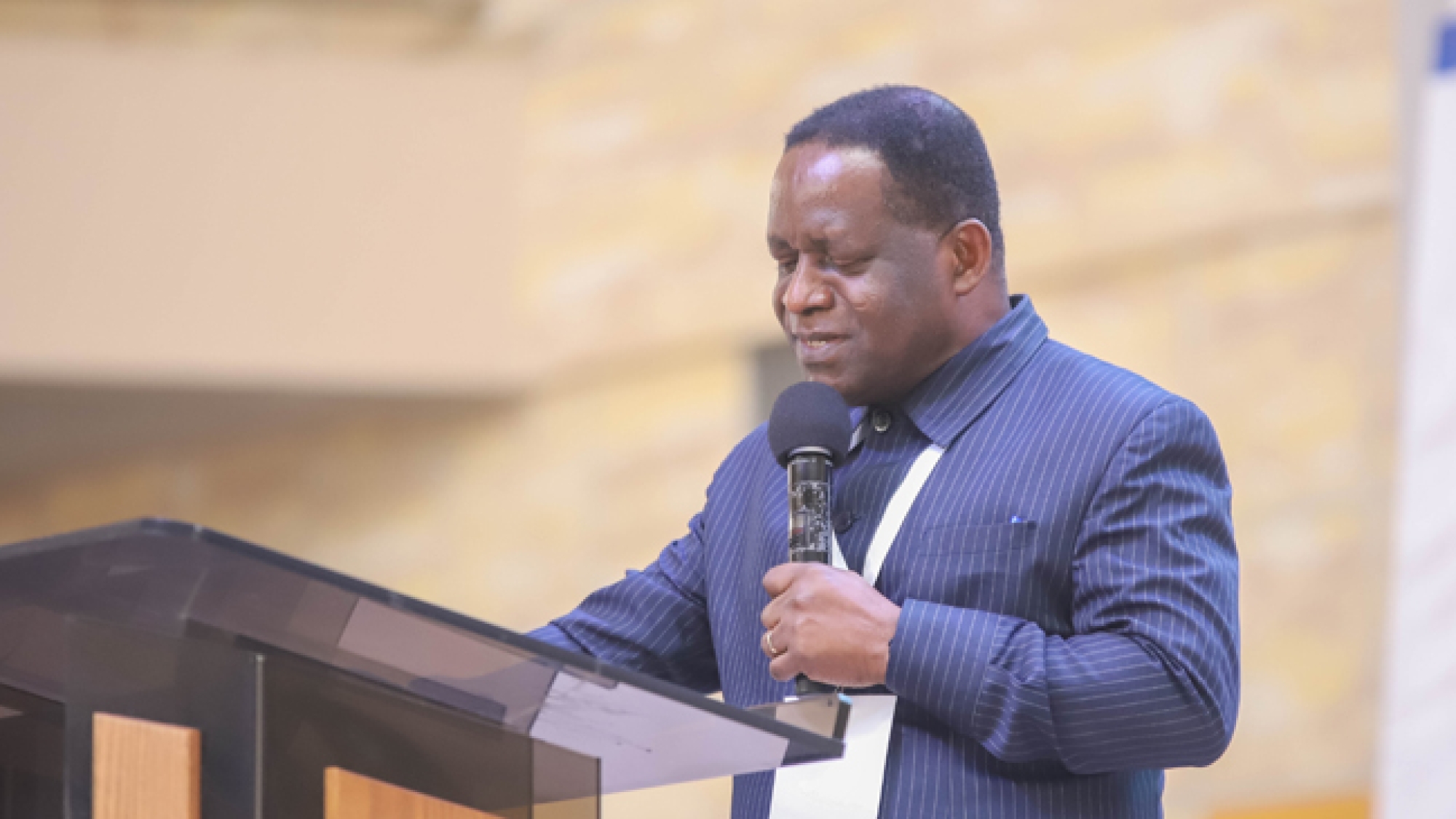ABSTRACT
This article highlights the importance of using Scriptures in contemporary Christian prayers and their impact on spiritual lives. By incorporating Scriptures, it deepens understanding, fosters reverence, and enables the effective expression of gratitude, confession, and intercession, among other aspects. It promotes a balanced approach, aligns prayers with God’s will, and provides guidance for spiritual fulfilment.
INTRODUCTION
Prayer is a central aspect of Christian worship and spiritual practice, allowing believers to communicate with God and express their faith, gratitude, fears, and hopes. Scripture, the sacred writings of the Bible, has been used in Christian prayers for centuries, providing guidance, inspiration, and comfort. This article explores the importance of using scripture in contemporary Christian prayer, guidelines for doing so, dangers of misusing scripture in prayer, and situations where scripture may not be appropriate.
The article provides an overview of scripture and prayer, defining key terms and explaining their importance in Christian life. It also discusses the biblical basis for using scripture in prayer, examples of biblical prayers, and guidelines for incorporating scripture in prayer. Furthermore, it examines the dangers of misusing scripture in prayer, highlighting the risks of using scripture for selfish motives and the negative impact it can have on relationships and the power of prayer. The article also discusses situations where scripture may not be appropriate in prayer and suggests alternative forms of prayer.
In conclusion, the article emphasises the importance of using scripture in contemporary Christian prayer and encourages readers to explore and deepen their prayer life through the use of scripture while seeking guidance from the Holy Spirit.
THE ROLE OF SCRIPTURE IN CHRISTIAN PRAYER
Scripture plays a central role in Christian prayer by providing guidance, inspiration, and comfort for believers. The Bible contains numerous examples of prayer, such as the Lord’s Prayer and the Psalms, which express various emotions and experiences. Scripture also deepens one’s relationship with God, as James encourages meditation to draw closer to Him and gain a deeper understanding of His nature and character. The Psalms are particularly useful in this regard, as they reveal the heart of God.
God’s desire to have a relationship with His people is evident in Scripture. Using scripture in Christian prayer helps align one’s prayers with God’s will, providing comfort and assurance in difficult times. The Gospel of John states, “If you abide in me, and my words abide in you, ask whatever you wish, and it will be done for you.” This ensures that Christians seek what is best for themselves and others.
Scripture is also used in corporate worship, providing unity and community among believers, reinforcing the teachings of the Church, and offering a shared language and experience. For centuries, Christians have used scripture in prayer, making it a valuable resource for their spiritual journey.
GUIDELINES FOR USING SCRIPTURE IN PRAYER
Scripture is a valuable tool in Christian prayer; guidelines must be followed for effective and appropriate use.
- Pray with Understanding
Praying with understanding involves understanding the context of scripture passages, focusing on their intended meaning and purpose, and applying the message to our lives and situations. Interpreters must discern the author’s intended message and historical contexts. Applying scripture to our own situations allows us to grow and change, as described by Dallas Willard in his book “Hearing God: Developing a Conversational Relationship with God.” By examining the message of scripture and applying it in practical ways, we can deepen our relationship with God and apply it to our own lives. By approaching scripture with humility, openness, and a willingness to be transformed by its message, we can use its words and teachings to guide our prayers and deepen our relationship with God.
Prayer in faith involves trusting in God’s power and sovereignty, believing in His word’s truth, and His faithfulness to fulfil His promises. By using scripture in prayer, we can demonstrate our trust in God’s power and sovereignty. We can also claim God’s promises for our lives, trusting that He will fulfil them. By focusing on God’s character as revealed in scripture, we can trust that He will continue to act in accordance with His nature. By applying the teachings of the Bible in our prayers, we can deepen our faith and trust in God’s goodness and faithfulness.
Approaching God in prayer with humility involves recognising His holiness and majesty, acknowledging our limitations and weaknesses, and seeking His guidance and help. By focusing on God’s greatness and smallness, we can recognise our dependence on Him. By confessing our sins and weaknesses, we can seek God’s forgiveness and guidance. By using scripture to pray with humility, we are not seeking to impose our own will on God or manipulate Him but rather surrendering our desires and aligning ourselves with His will. By focusing on the greatness and goodness of God, we can approach God with humility and align ourselves with His will.
Praying with perseverance involves seeking God’s guidance and help, even when faced with obstacles and challenges. It involves trusting in God’s faithfulness and persevering in prayer, even when immediate results are not visible. One way to pray with perseverance is to focus on God’s promises in scripture, as encouraged by the psalmist. Similarly, seeking God’s guidance and direction through prayer can also help us trust in His faithfulness and continue to persevere. By meditating on God’s promises and seeking His will for our lives, we can be encouraged to persevere in prayer and trust in His faithfulness.
Gratitude is crucial in prayer, regardless of whether using scripture. It involves acknowledging God’s blessings and goodness in our lives, as well as focusing on His character and attributes as revealed in scripture. By praying with gratitude, we not only thank God for the good things in our lives but also acknowledge His goodness and faithfulness in all things, including challenges and difficulties. By meditating on God’s character and reflecting on His provision in our lives, we can be filled with gratitude and thanksgiving in our prayers.
Repentance is a crucial aspect of prayer, as it helps identify areas where we need to repent and turn back to God. Scripture can help us recognize these areas and ask for forgiveness. One way to pray with repentance is to confess our sins to God, acknowledging our shortcomings and asking for His forgiveness. Another way is to ask God to reveal any hidden sins or areas of disobedience in our lives. By praying with repentance, we commit to turning away from our sins and following God’s ways. By asking God to reveal any hidden sins and walking in His righteousness, we can experience the freedom and forgiveness that come through repentance and faith in Christ.
Perseverance in prayer is crucial when using scripture in prayer, as it demonstrates faith in God and commitment to seeking His will. While scripture can be a powerful tool for Christians, it should not be used solely to impress others with knowledge of the Bible. Jesus warned against using prayer as a means of drawing attention to oneself, and James 4:3 warns against using scripture to manipulate or control God. Instead, Christians should approach scripture with humility, faith, and perseverance, seeking God’s will rather than impressing or manipulating Him.
THE DANGERS OF MISUSING SCRIPTURE IN PRAYER
Misusing scripture in prayer can lead to confusion, misunderstandings, and harm to spiritual life. Exploring dangers and Bible examples can help avoid such misuse.
- Taking Scripture Out of Context
Misusing scripture in prayer often occurs when it is taken out of context, leading to misunderstandings and confusion. For instance, the verse in Matthew 18:20, “For where two or three are gathered in my name, there am I among them,” can be misinterpreted as Jesus’ presence only during corporate worship or fellowship, causing confusion.
- Using Scripture as a Magical Incantation
Misusing scripture in prayer can lead to treating it as a magical formula, as seen in the case of Jewish exorcists using Jesus’ name to cast out a demon. However, using Jesus’ name as a magical formula does not guarantee spiritual power or authority.
- Using Scripture to Justify Sin
Misusing scripture in prayer can lead to justifying sin, as verses or passages may be taken out of context or misinterpreted to justify actions contrary to God’s will. For instance, 1 Corinthians 6:9-10 states that the unrighteous will not inherit the kingdom of God, but some have used this passage to justify discrimination against LGBTQ+ individuals.
- Using Scripture to Judge Others in Prayers
Misusing scripture in prayer can lead to judgment or condemnation of others without first examining one’s heart and motives. Jesus’ advice to not judge others can be harmful to both individuals and communities, as it can lead to judgment and division.
Misusing scripture in prayer can lead to confusion, misunderstanding, and harm. Christians should approach scripture with wisdom and discernment, studying its meaning and context before using it in prayer. They should also approach scripture with humility, acknowledging that we are fallible humans in need of God’s grace and mercy. Scripture is not a magic formula but a living, active word that can transform our hearts and minds when we submit ourselves to its teachings and guidance.
Scripture References:
Matthew 18:20 states that “where two or three are gathered in my name, there am I among them.” In Acts 19:13-16, Jewish exorcists invoked Jesus’ name to overpower evil spirits. However, the evil spirit mastered them, leading them to flee naked and wounded. 1 Corinthians 6:9-10 warns against deception, as unrighteous individuals will not inherit the kingdom of God. Matthew 7:1-5 emphasizes the importance of self-reflection and not judging others.
WHEN SCRIPTURE SHOULD NOT BE USED IN PRAYER
Scripture in prayer can be transformative, but it’s not always appropriate or helpful in certain situations.
Scripture in prayer can be used to manipulate or control others, especially when taken out of context or supported by a particular agenda. For instance, a parent might use Proverbs verses to justify punishment, while a political leader might use Romans verses to silence opposition or justify oppressive policies. Instead, we should use scripture to build up and encourage others in their faith.
Scripture in prayer can be a source of inspiration but should not replace authentic communication with God. Jesus warns against using empty phrases, as Gentiles may believe their words will be heard. Relying too heavily on scripture or pre-written prayers can lose authenticity and vulnerability, preventing a genuine relationship with God.
Scripture in prayer can sometimes be used to avoid dealing with real-life issues and challenges, such as dismissing others’ struggles or minimising our own actions. For example, a Christian might use Romans’ “all things working together for good” to avoid confronting difficult times, while an addict might use Philippians’ “I can do all things through Christ who strengthens me” to avoid seeking professional help. Instead, we should use scripture to engage more deeply with the world and our own struggles and shortcomings.
Scripture References:
Proverbs 13:24 states discipline is essential for love, while Romans 13:1 emphasises governing authority from God. Philippians 4:13 emphasises strength through God.
The use of scripture in prayer is a transformative practice that strengthens faith and deepens our relationship with God. It provides inspiration, guidance, and comfort during times of need. However, it is crucial to approach it with humility and discernment, avoiding manipulation and allowing the Holy Spirit to guide our prayer life. By following guidelines, we can ensure our prayers are grounded in God’s truth and avoid pitfalls that undermine our faith.
Appendices A
Scriptures like Psalm 23, Matthew 6:9-13, Philippians 4:6-7, Psalm 51, Psalm 139:23-24, Jeremiah 29:11, 1 Thessalonians 5:16-18, James 1:5, Matthew 7:7-8, and Psalm 121 can serve as foundations for guided prayers. These texts emphasize reverence, trust, surrender, peace, repentance, forgiveness, seeking God’s guidance, joy, gratitude, wisdom, and protection in times of trouble or uncertainty.
COMMONLY MISUSED SCRIPTURES FOR MANIPULATION
Scriptures can be misused to manipulate or control others, such as in Ephesians 5:22-24, 1 Timothy 6:10, Matthew 7:1, Romans 13:1, and Proverbs 13:24. These verses can justify oppressive behavior, financial success, judgment, accountability, suppression of dissent, and harsh discipline. To avoid these misuses, it is crucial to approach Scripture with humility, seeking the full context and guidance of the Holy Spirit. It is essential to read surrounding verses and consider the broader biblical context when studying and interpreting Scripture.
IMPORTANCE OF USING SCRIPTURES IN CONTEMPORARY CHRISTIAN PRAYER
Christian prayer is important in a Christian’s life. Scripture plays a role in prayer by providing guidance, deepening connection, reminding of promises, and encouraging during challenging times. Using Scripture in prayers can enhance the spiritual experience by deepening understanding of God’s word, bringing reverence, and articulating thoughts and emotions more effectively.
It is important to note that the use of scripture in prayers should be done in sincerity and understanding. It is not merely about reciting verses mechanically but about genuinely engaging with the meaning and message behind the words. I humbly recommend the appropriate use of scriptures in contemporary Christian prayers.
REFERENCES:
Grenz, S. J., Guretzki, D., & Nordling, C. F. (1999). Pocket dictionary of theological terms. InterVarsity Press.
Willard, D. (2002). Hearing God: Developing a conversational relationship with God. InterVarsity Press.
Fee, G. D., & Stuart, D. K. (2003). How to read the Bible for all its worth. Zondervan.
Written by Pastor Manasseh Mintah (Atimatim District, Old Tafo Area)














